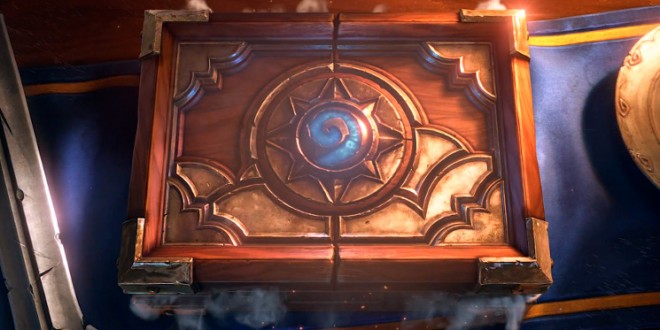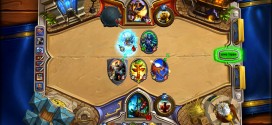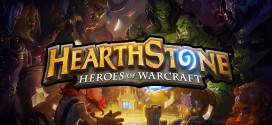A Finnish e-sports tournament of Heartstone has become the center of a massive controversy after advertising separate categories for men and women. The Assembly Summer 2014 tournament is the national qualifier for the men’s Hearthstone: Heroes of Warcraft IeSF World Championship tournament in Baku, Azerbaijan in November. The World Championship will also host male-only competitions in three other games: Starcraft 2, DOTA 2, and Ultra Street Fighter IV. Of these games, only Starcraft 2 is available to women contestants, though the game will still have separate competitions for men and women. Women may also compete in Tekken Tag Tournament 2, a game that won’t be available for men.
PC Gamer confirmed that Assembly Summer 2014 was segregating its competition based on gender and pressed the organizers for an explanation. The tournament’s head administrator, Markus “Olodyn” Koskivirta, responded that the primary reason for the decision was to make sure that whoever won would be able to compete in the World Championship Game, which is exclusively for men. “In accordance with the International e-Sports Federation’s (IeSF) tournament regulations, since the main tournament event is open to male players only,” said Koskivirta. Unfortunately he didn’t stop there, adding, “This is to avoid possible conflicts among other things.”
Just what Koskivirta meant by the latter part of that statement has so far been left to speculation, but it suggests that he believes a mixed gender tournament would result in conflicts. It’s a sad acknowledgment of the fact that the e-sports culture has been dominated by male players, some of whom have not been welcoming to female participants.
The IeSF itself gave a different and more detailed explanation for its decision to have a separate series of competitions for women. After the organization made a Facebook post announcing the events, scores of upset e-sports prompted a response. “We know that e-Sports is largely dominated by male players and females players are actually a portion of the overall player base,” wrote a spokesperson. “By hosting a female-only competition, we strive to promote female gaming on a global scale.”
The IeSF also feels that segregating its matches will help bring e-sports more in line with international standards. “IeSF is very close to get e-Sports recognized as a true sports like it should be,” the post continued. “Part of that efforts [sic] is to comply with the international sports regulations. For example, chess is also divided into male / female leagues.”
This two-fold explanation has proved intensely controversial. While it’s certainly true that most sports divide their competitors by gender, public opinion has struggled for a reason to do so with video-games. The reasoning isn’t immediately clear, or event necessarily valid, but IeSF’s rationale can be grasped based on the mention of chess. Chess has divided not only its prize pools, but its title system by gender. This serves two functions: first, that it draws more attention to female players and makes them more likely to earn prizes, and secondly that it supposedly helps women find sponsors – which depends heavily on their ability to draw attention by winning prizes. Women’s World Chess Champion Susan Polgar has spoken positively about this system, but there are plenty who think it’s time that chess fully integrated women into the international system.
It’s tough to say whether such measures would benefit women in e-sports, but the majority response so far has been a resounding no. Fortunately it sounds like the IeSF is listening. “But, we want you to know that we listen to you, and appreciate your feedback!” the Facebook post concluded. “Our efforts does not clash with the community opinion – but on the contrary – we are here for the future of e-Sports and will do our best to promote it as best as we can.”
 Load the Game Video Games, Reviews, Game News, Game Reviews & Game Video Trailers
Load the Game Video Games, Reviews, Game News, Game Reviews & Game Video Trailers



